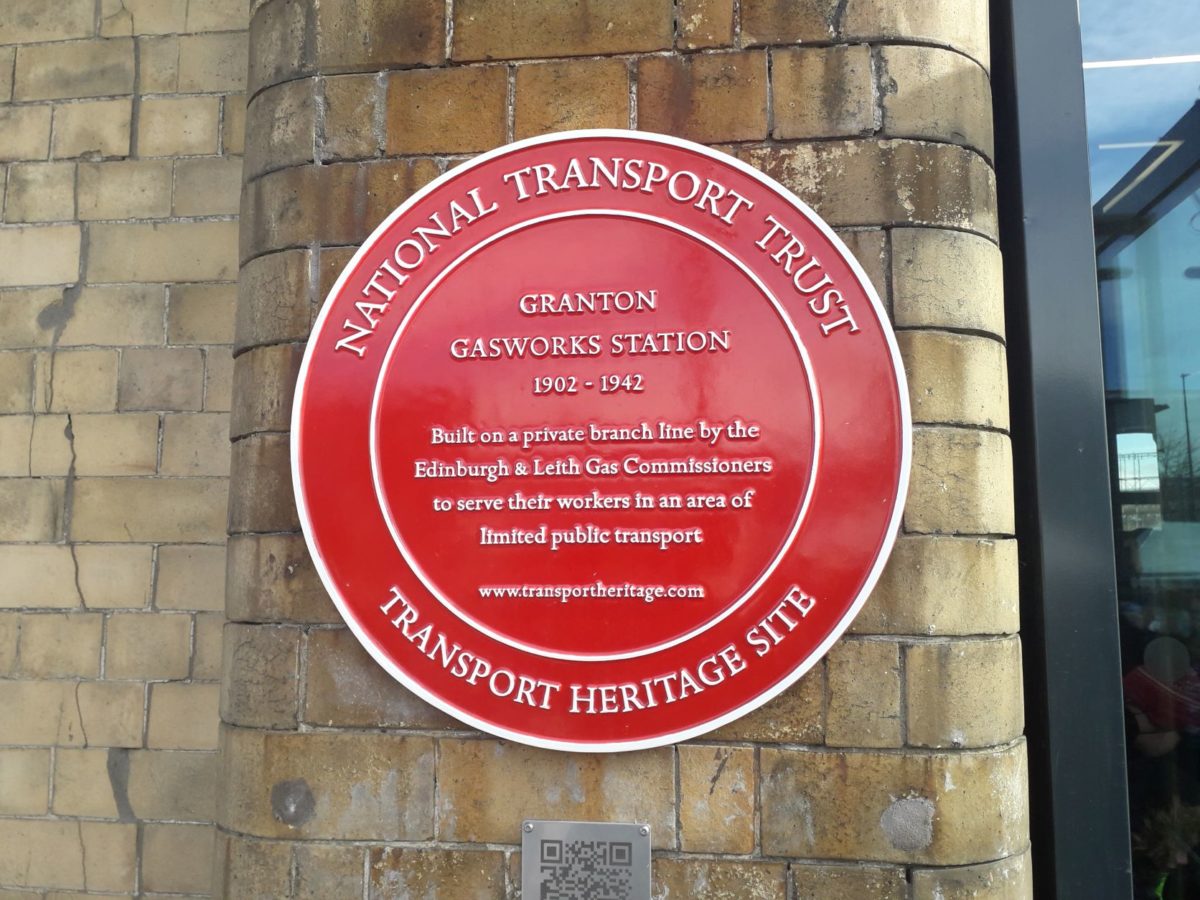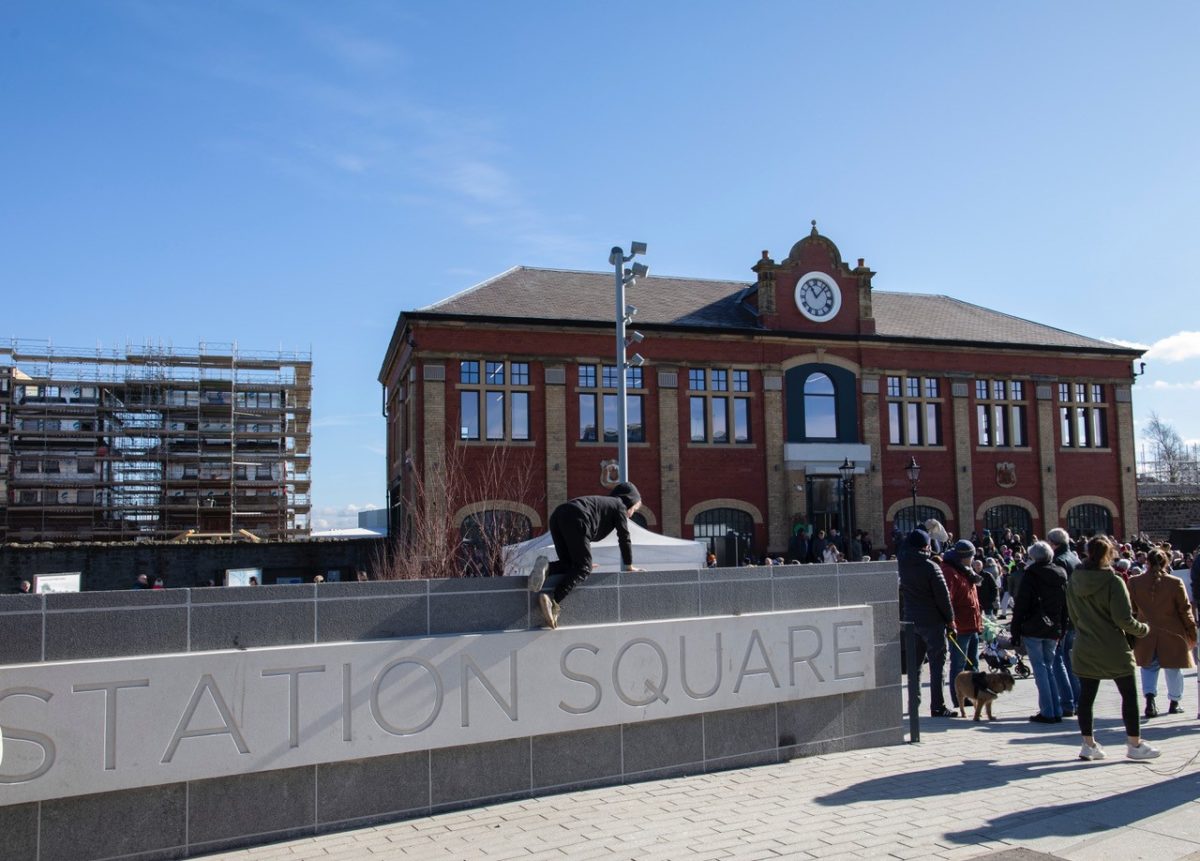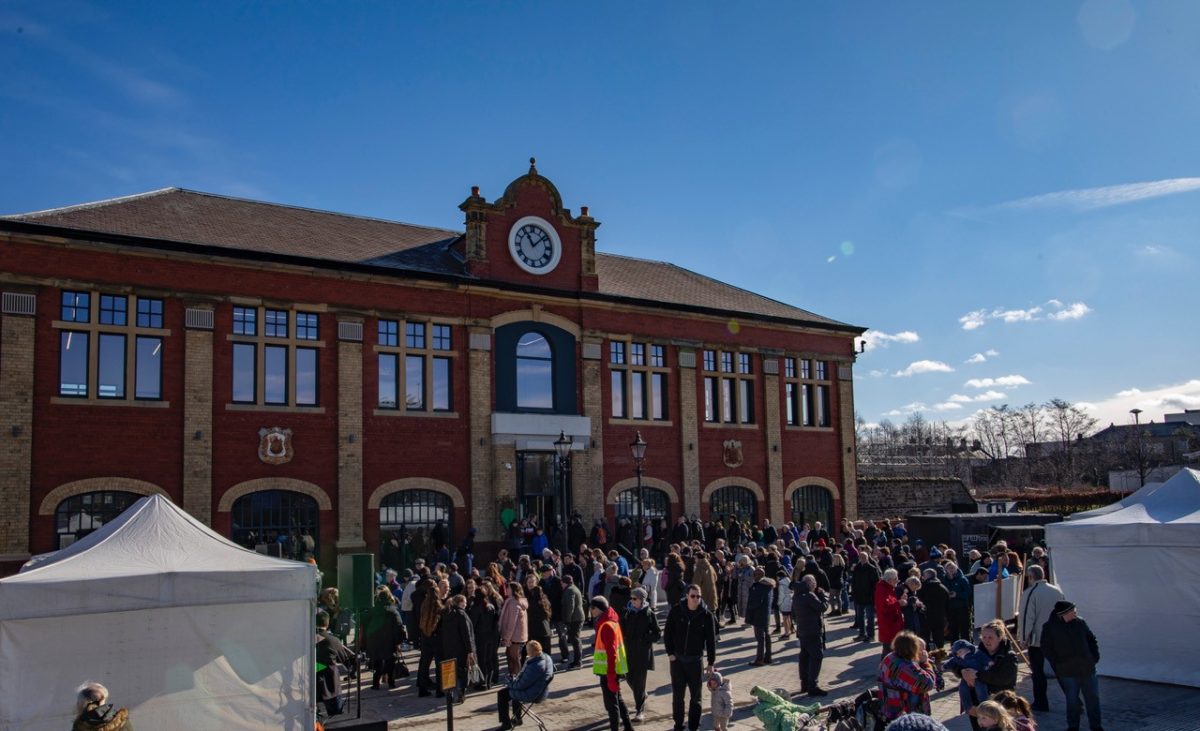It was a grand day for the opening of Granton Station Square
There was a grand opening of Granton Station Square on Saturday, the first major milestone of the Granton Waterfront regeneration.
Locals, including S3 pupils from Craigroyston Community High School were invited to see the refurbished Edwardian Granton Station building on Saturday. The pupils have been busy creating artwork symbolising the are along with local artist Shona Hardie. The art was displayed on Waterfront Broadway for everyone to see as the arrived and departed from the opening event.
There is also a history exhibition displayed on the squares two new art benches. This will be a year-round exhibition space with a changing display provided by partner organisations working with Granton Waterfront.
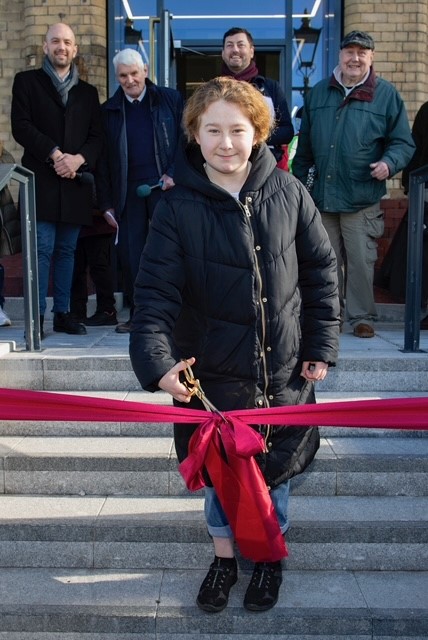
Council Leader Cammy Day said: “We’ve taken local people with us through every step of this process to reach this first major milestone. Seeing the refurbished Granton Station and iconic clock as well as the new square in all its glory feels very significant for the project and is another reason to come along and help us celebrate at this fantastic event.
“They sit at the heart of our £1.3 billion regeneration of the wider area and will be a focal point for the community and visitors to enjoy for generations to come.
We’re creating homes, jobs and new communities at Granton Waterfront and you can already see construction well underway for the first of the 3,500 net zero carbon homes.
“We’re building over 70 new mid-market and social rent net zero homes, with the first new residents due to move in at the end of this year. And on the far side of Forthquarter Park the Western Villages site is making good progress to deliver 444 net zero homes. Also included in the plans are a new primary school, health centre, active travel routes and improved transport links, as well as workspace, community and cultural spaces.
“We’ll also be marking the start of works on the neighbouring iconic Granton Gasholder shortly. It will create a multifunctional public space that can be used and enjoyed by residents and visitors alike so look out for work starting there soon.”
Meanwhile on Saturday there was family fun with local crafters makers and organisations at the market stalls in the square. Edinburgh College students and Newhaven Community Choir performed.
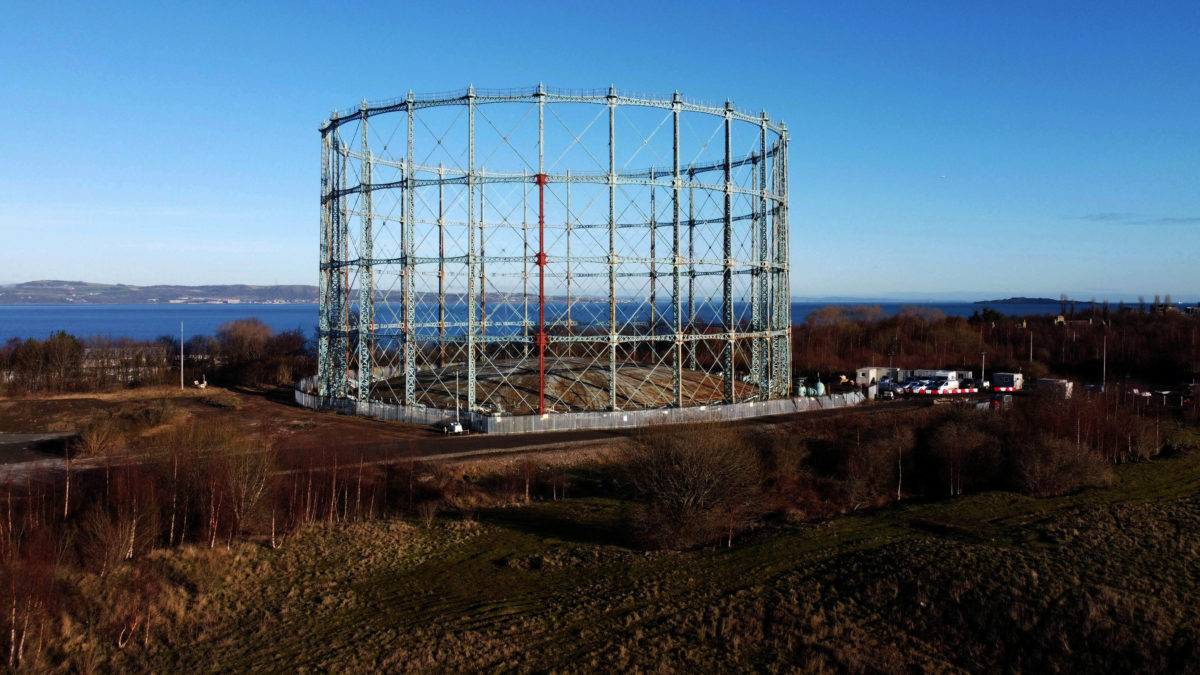
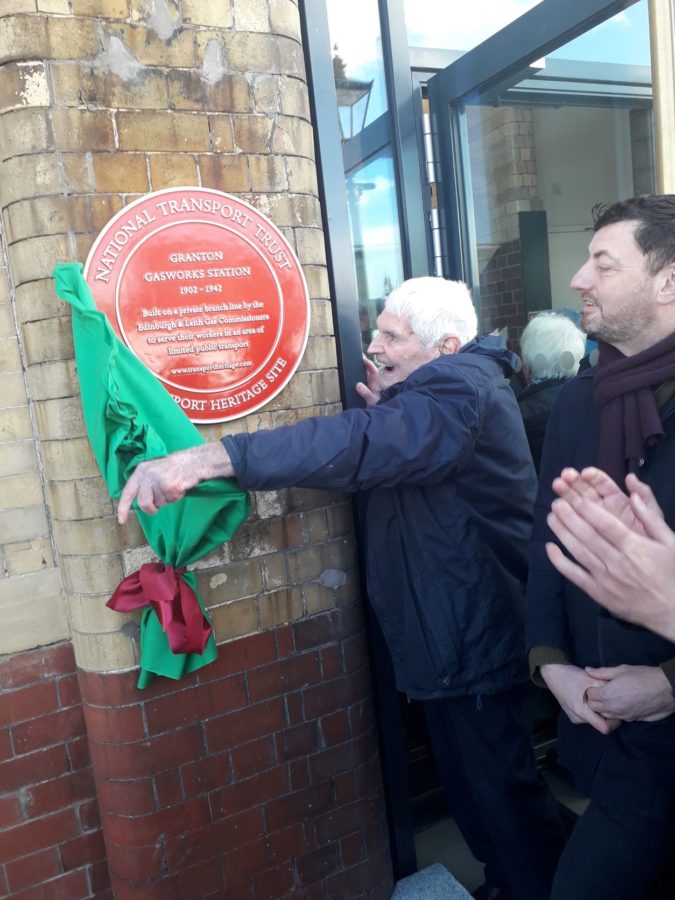
The station building has also been recognised as an important part of transport history with a red Transport Wheel which was unveiled by Cllr Day and Previous Chair of Scotrail John Cameron, CBE. The plaque reads: “Built on a private branch line by the Edinburgh & Leith Gas Commissioners to serve their workers in an area of limited public transport.” The station was built to service the Edinburgh and the Leith Gas Works, as large quantities of coal were required for gas production.
In the days before there was efficient road transport, rail was essential, and by 1926 Granton Gas Works consumed 200,000 tonnes of coal a year.
The National Transport Trust describes the station: “The station building is now part of the major redevelopment of the Edinburgh waterfront. Built between 1898-1904, with later 20th century alterations, the station has a Category B Listing.
“It is built in plain Edwardian classical design with Baroque pediment out of red brick with contrasting yellow brick and ashlar sandstone dressings. It has bays divided on all sides by giant yellow brick pilasters with fluted ashlar capitals and slightly projecting red brick pedestals with ashlar coping; red brick entablature above with ashlar architrave and eaves cornice.
“Yellow brick basket arches to ground floor windows; stone sills throughout. The interior contains a wide flight of stone steps leading down to ground floor from slightly higher entrance. A narrower curved stone staircase adjoins to the north of the present entrance – formerly the route taken by workers at the gasworks between the train that transported them here and the site itself.”
